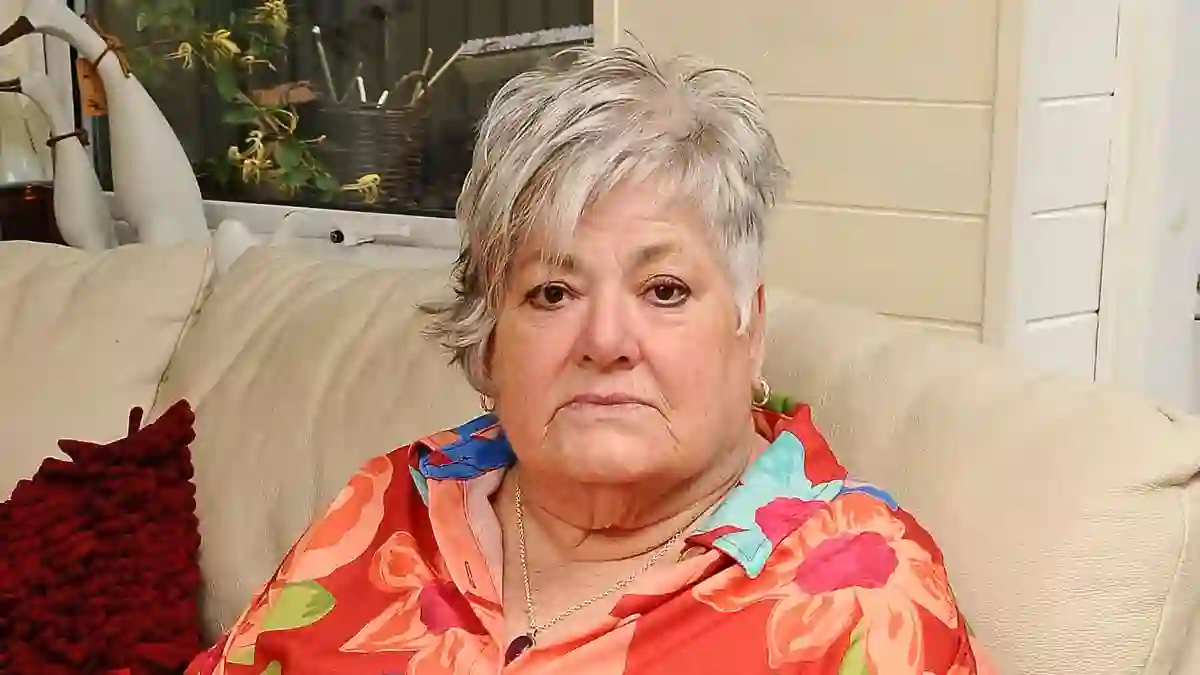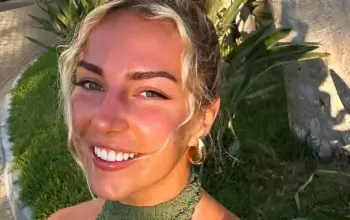It started like many online friendships do—with a kind message and a charming photo.
For 76-year-old Ava Waller from Harlow, Essex, it seemed like she had found someone to fill the silence of her later years.
But what she believed was the beginning of a new love story turned out to be an elaborate scam that cost her nearly £67,000—and her sense of trust.
A Charming Stranger and a Familiar Script
Ava, a divorced grandmother of three, was vulnerable.
Her mother had just passed away, she was living alone, and when a man named “David West” appeared in her Facebook messages back in 2018, she welcomed the attention.
He claimed to be an American oil-rig worker stranded at sea.
He was handsome, polite, and attentive—exactly what she thought she needed.
But what Ava didn’t know was that “David” didn’t exist.
The man in the photos was actually Dr Mark Smith, a chiropractor from Indiana whose identity had been hijacked by scammers more times than anyone can count.
And behind the fake profile was a scammer based in Nigeria, spinning believable stories of airport troubles and emergency expenses.
Small Transfers That Snowballed
At first, it was just £250 to help him sort out a supposed issue at the airport.
Then came tales of drilling equipment being held up, sick relatives, and flight delays.
With each story, Ava sent more.
She’d inherited her mother’s house and had some money saved—just enough for the scammer to zero in on.
Local Post Office workers grew concerned about her frequent visits to send money.
When they refused to process more transfers, she began sending it through bank accounts instead—careful not to use her daughter’s bank, who was a manager and might have intervened.
“I was in denial,” Ava admits now.
“Deep down I probably knew something was off, but I wanted it to be real so badly.”
A Carefully Crafted Emotional Trap
Over the next two years, the scam deepened.
The scammer played on her emotions with stories about a daughter’s medical emergency, promises of moving to England, and even marriage.
At one point, he promised to buy them a house with the money he was always just “about to receive.”
Even when his voice over Facebook Messenger didn’t quite match his supposed American identity, he had a story ready—he’d lived all over the world, he said.
He knew exactly what to say to keep her believing, even as she handed over thousands at a time.
A Health Scare That Unravelled Everything
In 2020, Ava was rushed to the hospital with sepsis.
Lying in a resuscitation room, her phone buzzed nonstop.
Her son Steven, by her side, picked it up—only to discover an endless stream of messages from “David,” demanding updates about a mysterious package of cash meant to be arriving at Ava’s house.
That moment shattered the illusion.
Steven dug further and found she had received other packages, sent money to different names like Oghogho Igbinuvia and Beverley Rojas, and may have unknowingly become part of a broader money laundering operation.
“It was so humiliating,” Ava says.
“I was in hospital, surrounded by other patients, as my son asked how I could send all this money to someone I had never even met.”
The Aftermath and a Hard-Learned Lesson
The police got involved and even took a suspicious package of around £600 that had arrived in the post.
But because the funds had already been sent overseas, there was little they could do.
Ava was left with only her regret—and a pile of money transfer receipts that remind her daily of what happened.
“I still have them all,” she says. “I look at them and wonder how I could have been so stupid.”
Once Ava finally cut the scammer off, his tone changed dramatically.
Gone was the sweet talk.
He became angry and aggressive, even demanding she sell her car or her house to keep sending money.
When he tried to contact her again months later, she told him exactly where to go.
Rebuilding and Warning Others
Today, Ava is much more cautious.
She’s learned to reverse image search any photos that strangers send her, and she has a clear rule: never send money to someone you’ve never met.
“I just want other people to be aware,” she says.
“If it seems too good to be true—it probably is.”
Ava’s story is heartbreaking, but it’s also an important reminder.
Scammers don’t just target the naive—they target the lonely, the grieving, and the hopeful.
And they’re getting smarter.



